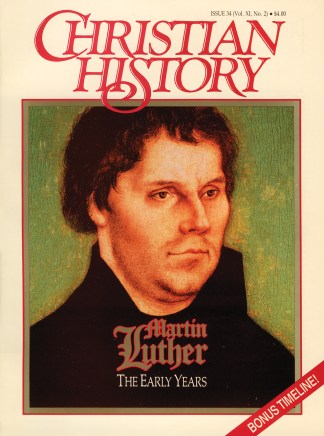Charles V (1500–1558)
Defender of the Catholic faith
When Charles was elected emperor of the Holy Roman Empire at the age of 19, he became the most powerful man in Europe. His domains included Burgundy, the Netherlands, Naples, and Spain and Spanish America (and he laid claim to northern Italy as well). Though his rivals and enemies were formidable—France, the papacy, and the Turks—Charles’s most urgent problem was the rise of the Lutheran movement.
After Luther’s excommunication by the pope, he appealed to Charles: “For three years I have sought peace in vain. I have now but one recourse. I appeal to Caesar.”
Charles called Luther to appear before the Diet of Worms in 1521, an already scheduled council of the German rulers. After days of examining Luther, Charles called in the electors and other princes to read them his decision:
“A single friar who goes counter to all Christianity for a thousand years must be wrong. I have decided to mobilize everything against Luther: my kingdoms and dominions, my friends, my body, my blood, and my soul.” The Edict of Worms, signed by Charles weeks later, banned Luther from the empire.
For many years other political difficulties preoccupied the emperor, allowing him to pursue only an irregular policy toward the Lutherans, which wavered between concession and repression. At the Diet of Augsburg (1555), the Protestant rulers finally forced him to accept the principle of cuius regio, eius religio—the princes of the empire are to determine the religion of their lands.
By the following year, the burdens of the realms had grown too great, and Charles abdicated his throne to retire to a monastery, depressed and failing in health. When he died two years later, his last word was “Jesus.”
Paul Thigpen, a professional writer, is a doctoral candidate at Emory University in Atlanta, Georgia.
Copyright © 1992 by the author or Christianity Today/Christian History magazine.Click here for reprint information on Christian History.










